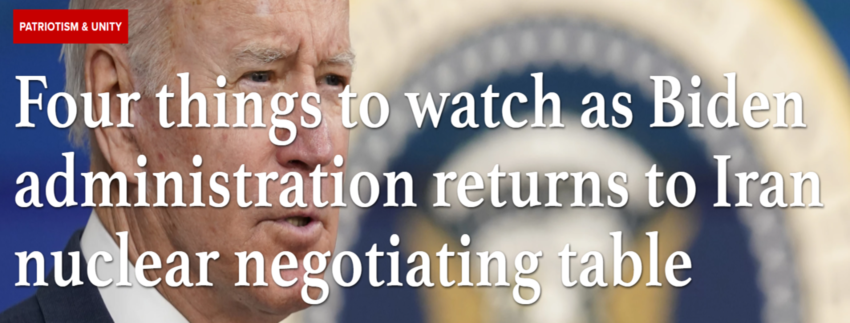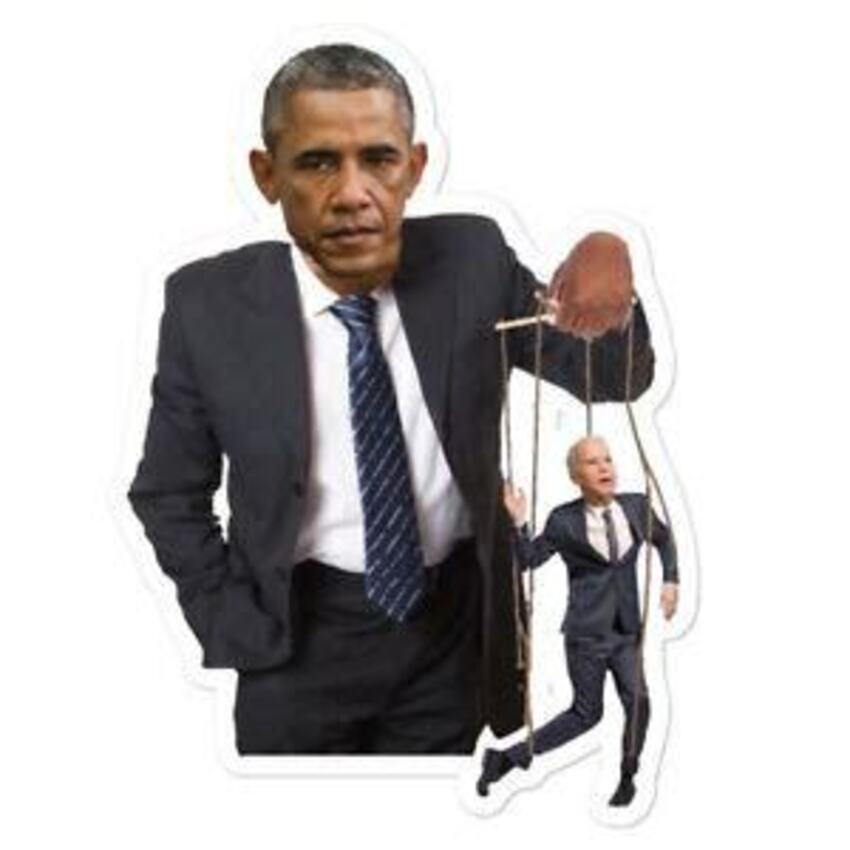Four things to watch as Biden administration returns to Iran nuclear negotiating table

OBIDEN IS A BOLD FACED LIAR
Iran nuclear deal negotiations resume Monday after five months, but experts warn the United States is on even weaker footing than before after the deadly withdrawal of troops from Afghanistan and unanswered proxy attacks on military assets.
Here are four developments to be mindful of as officials gather in Austria for the seventh round of negotiations since President Joe Biden’s inauguration.
BIDEN’S LAST-MINUTE SPRINT TO REVIVE HIS PRESIDENCY
Less favorable conditions for a new Iran nuclear deal
Biden and his aides assumed reentering the Iran nuclear deal would be a “slam dunk,” according to Blaise Misztal, the Jewish Institute for National Security of America’s vice president for policy. But since the first six rounds of negotiations between April and June, conditions have changed, which could result in a less favorable deal for the U.S., including perceived hard-liner President Ebrahim Raisi’s election in Iran.
“The negotiating team that Raisi is sending to Vienna is stocked with people who criticized the JCPOA from the outset in 2015,” Misztal told the Washington Examiner, using the Iran nuclear deal’s formal name, the Joint Comprehensive Plan of Action. “And they’ve started making all sorts of other demands, including that the United States pay Iran $10 billion just to return to negotiations,” he said.
Iran also took “very great notice” of the Afghanistan withdrawal as “a sign that the U.S. is weak,” according to Misztal. “Just a month ago, we had Iranian proxies attack a U.S. base in Syria, and the U.S. did nothing in response,” he added.
That is on top of the U.S. “pulling back on any pressure that could be interpreted by the [Iranian] regime as provocative,” according to Richard Goldberg, a senior Foundation for Defense of Democracies adviser. That has eased Iran’s economic burden since it had only $4 billion in accessible foreign exchange reserves at the end of former President Donald Trump’s administration.
“The maximum deference campaign that President Biden has waged has been returned with a maximum expansion campaign by the Iranians on their nuclear program in their terrorism realm throughout the Middle East,” Goldberg said.
Tricky dynamics between China, Russia, and the other Iran nuclear deal signatories
Iran has declined to negotiate directly with the Biden administration regarding the nuclear deal. That is “rather embarrassing from a diplomatic perspective,” according to Goldberg. Instead, negotiations have been facilitated by British, French, and German representatives, as well as their Chinese and Russian counterparts.
“China and Russia have a strong incentive to maintain the status quo,” Goldberg said, referring to conventional and nuclear arms sales or infrastructure projects for natural resources. “They also like the fact that Iran is a provocateur of the United States,” he added.
European partners have, broadly speaking, adopted “an appeasement policy” toward Iran, Goldberg contended. Misztal concurred, in part. It will be interesting to see whether the Europeans “display greater impatience” with the U.S. or Iran concerning who they consider to be “the biggest obstacle to getting back to the deal,” according to Misztal.
“[Iran comes] into these talks with a new objective, and that is to maintain all of these nuclear gains that they have achieved throughout the year, keep them as a new baseline for future negotiations, and still manage to get some additional sanctions relief out of the Biden administration,” he said.
Iran buying itself more time for its nuclear program
As negotiations resume, Iran has bolstered its nuclear program in terms of the amount of enriched uranium in its stockpile and the number of operable centrifuges at its disposal, according to Misztal. That has gifted Iran with negotiating leverage over the Biden administration, he said.
Biden and his team have toughened their own message, reiterating that “time is running out” and floating the idea of a Plan B with Israel, according to Misztal. But the problem is the administration has not imposed a negotiation deadline or detailed his contingency plan, he explained.
“Even if [Iran] doesn’t believe that the United States might attack it, it does think that diplomacy buys it some time and makes it harder, for example, for Israel to attack Iran,” Misztal said. “It also buys goodwill.”
“One of Iran’s overarching strategies is always to divide Western powers by creating uncertainty and doubt as to Iran’s true intentions,” he added. “What it doesn’t want is the U.S. and European countries, and Russia and China, agreeing that Iran is developing a nuclear weapon, or that Iran is unwilling to compromise, and ganging up on it and passing more sanctions at the U.N.”
A “less for more” Iran nuclear deal?
There are two potential outcomes for this week’s Iran nuclear deal negotiations, according to Misztal. They include a pact to “keep talking” or the Biden administration caving and arranging fewer nuclear and economic restrictions “out of their desperation to get any sort of deal,” he predicted.
“Plan B has to be not only more U.S. sanctions. It has to be multilateral sanctions at the U.N. like there were under the Bush and Obama administrations,” Misztal said of former Presidents George W. Bush and Barack Obama. “It also has to be military pressure. Iran really has to believe that we’re going to stop them from getting a nuclear capability, one way or another.”
Negotiators should roll back the Iran nuclear deal’s supplementary U.N. Security Council resolution, removing its sunset provisions, according to Goldberg.
CLICK HERE TO READ MORE FROM THE WASHINGTON EXAMINER
“They should work with our European allies to snap back the Security Council resolution. Take away the sunsets from Iran,” Goldberg said of Biden and his staff. “Do not lift sanctions. Actually enforce all of our sanctions. Encourage the Europeans to add their own sanctions,” he added. “Don’t pull back pressure at the [International Atomic Energy Agency]. Increase pressure at the IAEA through resolutions, censures, and referrals to the Security Council.”
#############33
















